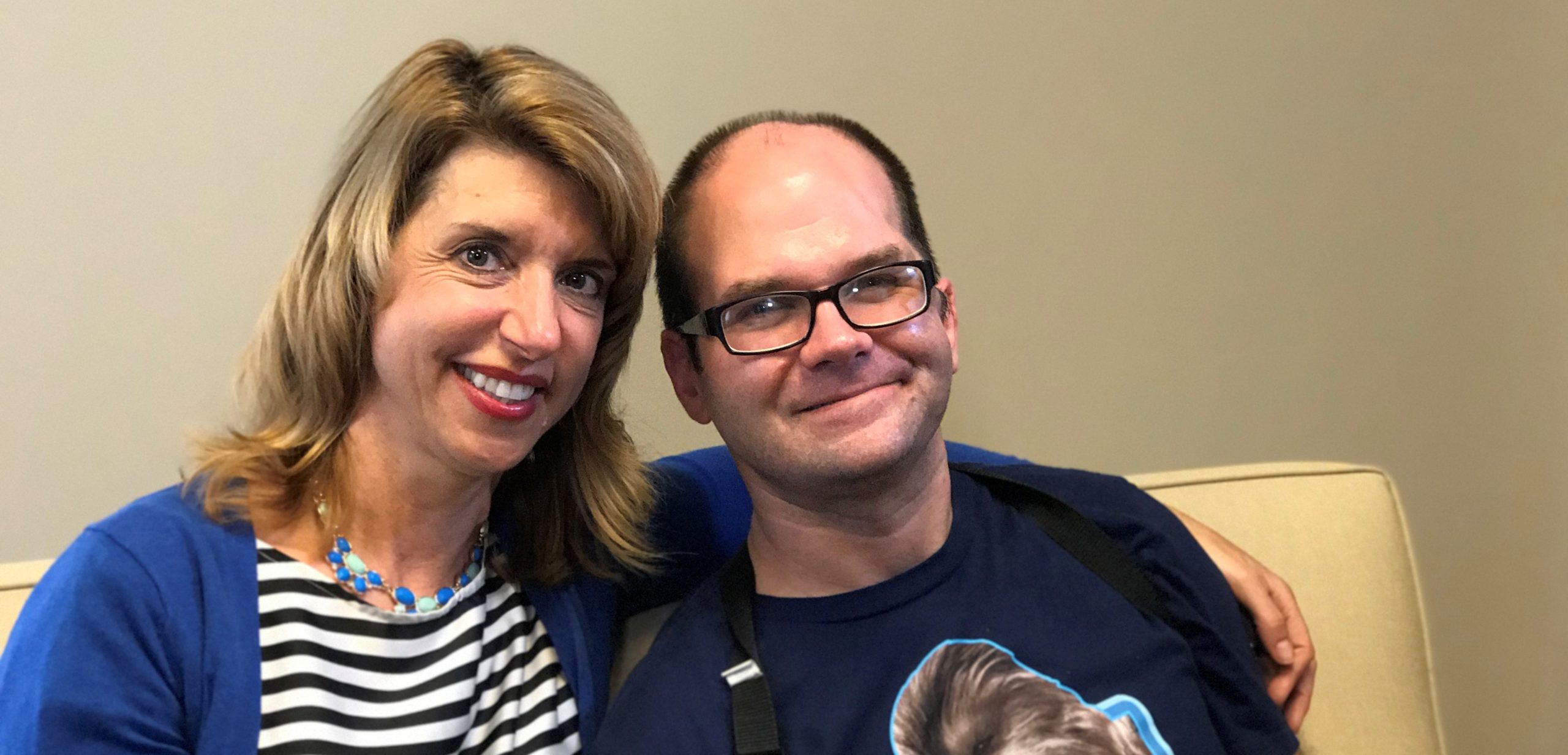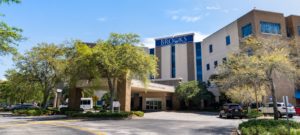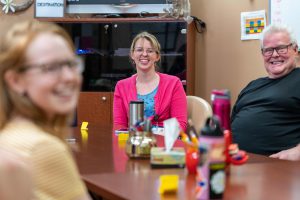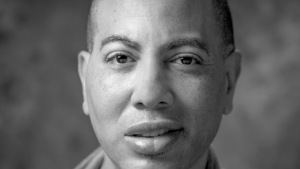Actions Speak Louder than Words for Stroke Survivor

Back to physical health resource hub
A stroke can be life-changing. Butch Goodwin knows this all too well. His stroke came without warning and changed not only his life, but the lives of everyone around him. He was only 38 years old at the time.
On December 3, 2013, Butch suddenly fell out of his bed. His wife, Melissa, knew something was wrong and immediately called 911. He was taken to the closest emergency room; however, his condition was so dire they rushed him to Mayo Clinic.
Butch had a severe left ischemic stroke caused by a rupture in the artery in his neck. His brain swelled and they had to perform a craniotomy to ease the pressure. Physicians told Melissa to call Butch’s parents right away. They weren’t sure he would survive the night.
As experts worked to stabilize Butch’s condition, they did additional testing to identify why someone so young had such a severe stroke. It was determined that Butch had Factor II deficiency, a rare, genetic bleeding disorder. After two weeks at Mayo Clinic, Butch was transferred to Brooks Rehabilitation Hospital where he spent the next 72 days.
When Butch arrived, he was unable to do anything for himself. He participated in intensive physical, occupational and speech therapies for hours each day. His initial goal was to walk again. While he still struggled with significant physical impairments in strength, spasticity and motor control, he was able to walk using a single point cane when he was discharged.
Although he could walk, he was still unable to talk. Butch developed severe aphasia from the stroke. When the stroke happened, Butch, Melissa, and their two daughters, Avery and Abby, were living with Butch’s mother-in-law Ellen. Butch returned there to continue his recovery. Although Ellen had recently retired, she took on a new role as his caregiver.
Participating in home health care, outpatient therapies and the Brain Injury Day Treatment (BIDT) Program became Butch’s new full-time job. He embraced his new job as much as any other position he’d had.
“Butch was such an inspiration to the other Day Treatment patients when he was in our program. He is so severely aphasic, but he never stops trying and has a perseverance that I wish all of our patients could have,” said Hannah Foster, his NRDT physical therapist.
During the summer of 2015, Butch participated in an intensive aphasia program in Orlando for six weeks. Ellen and Butch’s parents took turns staying with him in the evenings because he was unable to be left alone.
When Butch graduated from the NRDT, he continued with outpatient therapies and became a member of the Brooks Clubhouse. As a member, he began to regain skills he had prior to the stroke and also regain a little independence. He progressed from being driven to the Clubhouse each day to being able to take a bus to and from the Clubhouse on Mondays and Wednesdays. He worked with the computer and made many new friends.
“Butch has always been determined. Through all of this, he never gave up,” said Ellen.
When the Brooks Aphasia Center opened, Butch was one of the first members. Center Manager Jodi Morgan says, “Butch is always practicing random acts of kindness. He scans a room and finds that one person who looks down. Even though he can’t speak more than a few words, he is able to share encouragement, a hug or a smile. He knows just what to do to make people feel better. He helps push his friends in their wheelchairs, even though he sometimes struggles to walk himself. Everything he does is to help others.”
Butch shares that same selflessness at home where he tries to do increasingly more to help Ellen around the house. His daughter Abby, now 14 years old, encourages him every day. Although Butch’s stroke was life-changing, he and Abby still find ways to have fun together. Both enjoy going to the beach and listening to music. Butch also participates in several Brooks events and wants to be an advocate for aphasia awareness. Despite all of his limitations, he perseveres.
“No one can predict the future. Butch just finds ways to make the best of it,” said Ellen.
For more information about stroke, please visit our stroke section.


